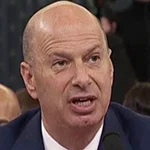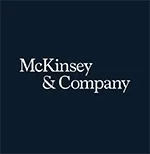The insurance sector, like most businesses today, finds itself in uncharted waters due to the COVID-19 pandemic. The unprecedented economic disruption of the coronavirus has commercial insurance companies seeing a deluge of claims from policyholders whose businesses have been interrupted or forced to close in light of the outbreak.
As a business, insurance is profitable when risk is spread out across a wide pool of policyholders. It isn’t a particularly good business model when faced with incidents such as global pandemics, where virtually every policyholder experiences extended losses at the same time. So, while “business interruption" coverage is indeed a common feature of commercial insurance policies, it doesn’t typically provide coverage for communicable diseases or government-imposed shutdowns caused by a national emergency—unless physical damage has occurred to trigger coverage for such losses.
As a result, countless small businesses across the country have filed claims with their insurance provider for COVID-19-related losses only to see those claims denied. And in response, many of those businesses—everything from restaurants, to barbershops, to record stores, to tribal nations—are taking insurance providers to court for refusing to cover those claims.
Now, state and federal lawmakers have introduced legislation that would essentially rewrite existing business interruption provisions for business insurance coverage, requiring insurance carriers to pay COVID-19-related business interruption claims, even in cases where policies don’t cover losses due to viruses.
In April, Rep. Mike Thompson (D-CA), introduced H.R.6494, the “Business Interruption Insurance Coverage Act of 2020,” which would make business interruption insurance coverage available to businesses affected by losses due to viral pandemics, forced closures, mandatory evacuations and other public safety emergencies.
A similar bill, H.R.6497, the “Never Again Small Business Protection Act,” introduced by Brian Fitzpatrick (R-PA), Gil Cisneros (D-CA), Will Hurd (R-TX), and Thomas Suozzi (D-NY), would mandate insurance carriers that offer business interruption insurance to make available additional coverage that keeps small businesses afloat during national emergencies.
 |
A series of other similar bills introduced at the state level—so far, in Massachusetts, Pennsylvania, New Jersey and Ohio—purport to do much the same thing.
In response, insurance companies and the trade groups that represent them are flooding Washington to voice their opposition to these bills, claiming that forcing carriers to essentially pay for coverage they never sold in the first place threatens their business and poses significant future affects for the industry as well as the small businesses that rely on them.
The American Property Casualty Insurance Association, the national trade group representing home, auto and business insurers, registered in April to lobby Congress on behalf of “COVID-19 Related Insurance Legislation” as it relates to “Business Interruption Insurance,” according to Lobbying Disclosure Act Database documents. APCIA has separately retained Ogilvy Government Relations to lobby Congress and the Office of Management and Budget on “COVID-19 related insurance legislation; business interruption insurance.”
APCIA has warned that any federal legislation requiring insurers to retroactively rewrite existing insurance policies to cover losses associated with viruses or pandemics under the guise of business interruption protections would cause significant harm to the insurance industry.
“These types of proposals could have dramatic repercussions for families, individuals, motorists and businesses, potentially compromising the financial ability of insurers to meet their existing promises,” APCIA said in a statement posted to its website. “If policymakers force insurers to pay for losses that are not covered under existing insurance policies, the stability of the sector could be impacted and that could affect the ability of consumers to address everyday risks that are covered by the property casualty industry.”
The National Association of Professional Insurance Agents, the nonprofit representing independent insurance agents, registered in April to lobby Congress on “issues related to business interruption insurance and COVID-19.”
“BI provisions typically do not cover losses resulting from risks like the coronavirus,” PIA stated in a release on its website. “Retroactively rewriting contracts undermines existing contractual relationships and risks injecting new uncertainties into our current economic crisis. Such proposals purport to quickly provide assistance to businesses in need, but in reality, such a response would not help all businesses; only one in three small businesses even has business interruption coverage. As such, only a small percentage of businesses would benefit in any way from it, and thousands of small business owners would be left struggling.”
The Wholesale & Specialty Insurance Association, the nonprofit of insurance professionals representing the wholesale, specialty and surplus lines industry, hired law firm Faegre Drinker Biddle & Reath to lobby Congress on “COVID-19 response on insurance impacts including business interruption and recovery fund legislation.”
“These bills attempt to change every insurance policy issued for loss of use and occupancy and business interruption so that each policy would effectively be rewritten to include coverage for business interruption during the declared state of emergency due to the COVID-19 pandemic and mandate insurance policy interpretation regardless of the clear wording of the policy itself, providing a coverage never intended when the policy was underwritten and priced,” WSIA said in a statement.
The list goes on. Life insurance trade group The American Council of Life Insurers registered in April to lobby on “Business interruption insurance.” The Reinsurance Association of America, which represents property and casualty reinsurers, hired Williams & Jensen to advocate on “COVID-19 response legislation—business interruption insurance.” Independent agent group the Independent Insurance Agents and Brokers of America registered to lobby on “Fitzpatrick Business Interruption Legislation.”
Then there are the insurance carriers themselves. State Farm Mutual Automobile Insurance Company registered to lobby Congress in April on issues “related to business interruption and related insurance matters concerning coverage of pandemics or viruses.” Fortune 500 investment and insurance company Hartford Financial Services Group registered to lobby on H.R. 6494. Columbus, Ohio-based commercial, auto, home and life insurance company Encova Insurance tapped Washington lobbying shop Williams & Jensen to lobby on “business interruption insurance and P&C (property and casualty) insurance issues.” Insurance giant Liberty Mutual Insurance Company retained law firm Akin Gump Strauss Hauer & Feld in April to advocate on “matters relating to COVID-19 response, business interruption.”
Another group to oppose H.R.6497 and H.R.6494 is the National Association of Insurance Commissioners, the regulatory organization comprised of elected state officials who regulate insurance companies. The NAIC, which is governed by the chief insurance regulators from all 50 states, establishes the standards and best practices used by state insurance regulators and coordinates their oversight. It has argued that requiring insurers to pay for claims their policies don’t currently cover would create “substantial solvency risks” for the insurance industry.
“Business interruption policies were generally not designed or priced to provide coverage against communicable diseases such as COVID-19 and therefore include exclusions for that risk,” the NAIC said in a statement. “If insurance companies are required to cover such claims, such an action would create substantial solvency risks for the sector, significantly undermine the ability of insurers to pay other types of claims, and potentially exacerbate the negative financial and economic impacts the country is currently experiencing.”
A 2015 Nationwide survey commissioned by Harris Interactive found that two-thirds of small businesses (66 percent) don’t have policies containing businesses interruption insurance coverage.


 Carlsbad, a north San Diego County city of 115K people, is looking for a firm to provide government relations and Sacramento lobbying services.
Carlsbad, a north San Diego County city of 115K people, is looking for a firm to provide government relations and Sacramento lobbying services. Gordon Sondland, who was US ambassador to the European Union under Donald Trump, has registered as a representative of Ukraine’s cabinet and ministers.
Gordon Sondland, who was US ambassador to the European Union under Donald Trump, has registered as a representative of Ukraine’s cabinet and ministers. The Daschle Group is representing Santa Monica-based Stand with Hong Kong Action, an advocacy group that fights to end Chinese repression in Hong Kong.
The Daschle Group is representing Santa Monica-based Stand with Hong Kong Action, an advocacy group that fights to end Chinese repression in Hong Kong. McKinsey & Co. has reached out to Republican shop Harbinger Strategies to educate policymakers about the activities of the embattled management consultancy.
McKinsey & Co. has reached out to Republican shop Harbinger Strategies to educate policymakers about the activities of the embattled management consultancy. Scotland’s SaxaVord Spaceport, which is the UK’s only facility for vertical rocket launches, has hired Alexandria’s Brian Glackin & Assocs. for Washington representation on aerospace and defense matters.
Scotland’s SaxaVord Spaceport, which is the UK’s only facility for vertical rocket launches, has hired Alexandria’s Brian Glackin & Assocs. for Washington representation on aerospace and defense matters.


 Have a comment? Send it to
Have a comment? Send it to 
No comments have been submitted for this story yet.